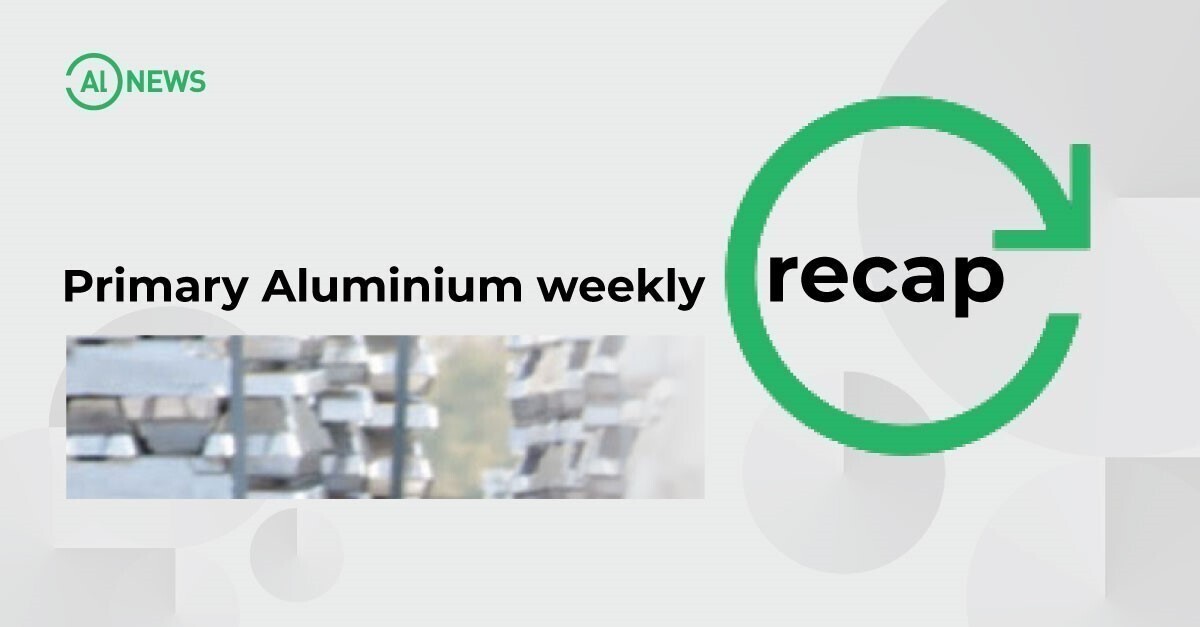

Rio Tinto has announced the appointment of Bold Baatar as Chief Commercial Officer, succeeding Alf Barrios, who is set to retire. The Red Sea ship attacks have led to global shipping companies rerouting via the Cape of Good Hope, disrupting European automotive production reliant on Asian imports. Aluminium prices surged to a 14-month high, hitting $2,480.50 per tonne on the London Metal Exchange (LME), driven by robust investor confidence in the global economy. Vedanta Limited has recently increased its aluminium selling prices, marking a 6% surge since April. Turkey and Israel have announced trade barriers against each other, with Turkey imposing immediate restrictions on the export of 54 product types to Israel, including aluminium. The LME aluminium benchmark price grew by US$52 per tonne or 2.17 per cent over the weekend to reach US$2,443 per tonne, while the SHFE aluminium price ascended by US$61 per tonne or 2.2 per cent to arrive at US$2,833 per tonne on April 12.

Bold Baatar named Chief Commercial Officer at Rio Tinto, prioritising growth initiatives
Rio Tinto appoints Bold Baatar as Chief Commercial Officer, succeeding Alf Barrios, who retires. Bold, currently Chief Executive of Copper, will transition on September 1, 2024, overseeing global commercial operations from Singapore. Alf remains until August, then assumes Chair for China, Japan, and Korea until his 2024 retirement. Bold, with Rio Tinto since 2013, rose swiftly to the Executive Committee. His tenure includes leading Energy & Minerals before becoming Chief Executive of Copper. Alf, with Rio Tinto since 2014, served as Chief Executive of Aluminium before assuming commercial roles. Rio Tinto CEO Jakob Stausholm praises Bold's expertise in delivering strategic growth and value.
Crisis at sea, turmoil on land, auto manufacturers on edge
The Red Sea ship attacks have prompted global shipping companies to reroute via the Cape of Good Hope, disrupting European automotive production reliant on Asian imports. Tesla and Volvo faced shutdowns due to component shortages, which were attributed to transit delays. Europe's aluminium dependency, exacerbated by geopolitical tensions and energy costs, is met by increased purchases from RUSAL. European manufacturers seek solutions like inventory hikes and alternative suppliers amidst a push for greener economies, aligning with FACE's emphasis on low carbon footprint aluminium. Strategic responses include diversifying suppliers and exploring airfreight options to mitigate supply chain risks.
Aluminium surges to 14-month high amidst strong market sentiment
Aluminium prices surged to a 14-month high, hitting $2,480.50 per tonne on the London Metal Exchange (LME), driven by robust investor confidence in the global economy. The uptrend reflects renewed demand, with manufacturing expanding notably in China and the United States. Analysts like Carsten Menke from Julius Baer attribute this optimism to reliable cyclical indicators, especially considering the resilience of the U.S. economy and positive trends worldwide. This surge signals a promising outlook for the aluminium market amidst a backdrop of strengthening industrial metal prices.
Vedanta Limited, led by Anil Agarwal, recently released updated aluminium selling prices, witnessing a 6% surge since April. Linked to the London Metal Exchange's benchmark, Vedanta's aluminium prices increased by INR 1,750 per tonne on April 9 compared to April 5. Aluminium ingot prices ranged from INR 234,000-254,000 per tonne, billet prices at INR 244,500 per tonne, and wire rod prices at INR 243,500-252,500 per tonne. Additionally, Vedanta reported a 4% increase in aluminium production in Q4 FY2024, reaching 598,000 tonnes, and a 3% increase in full-year production to 2.37 million tonnes.
Turkey & Israel announces trade barriers on the export of 54 different products, including aluminium
Turkey and Israel have announced trade barriers against each other, with Turkey imposing immediate restrictions on the export of 54 product types to Israel, including aluminium. In retaliation, Israel stated that it was implementing a ban on Turkish products. The trade barriers were made public a day after Turkey's Foreign Minister revealed that Israel had prevented Turkish military cargo planes from participating in an operation to airdrop humanitarian assistance to Gaza. Furthermore, Israeli consumers have been choosing not to import from Turkey during the Israel-Hamas geopolitical crisis, leading to a 30% increase in aluminium exports to Israel from Bosnia and Herzegovina-based company Aluminij.



Responses






